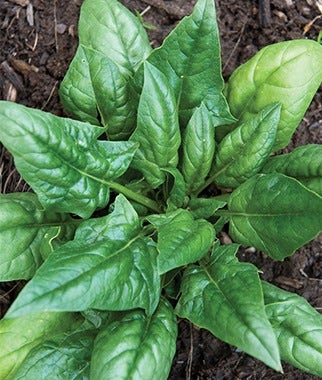We use cookies to give you the best experience on our website. These cookies are completely safe and secure and will never contain any sensitive information. Please read our Privacy Policy. By clicking "Ok" or clicking on any other content, you agree that cookies can be placed.
Short Season Vegetable Gardening
Many gardeners think of the time period between the last spring frost and the first frost as the growing season. Anything less than 120 days is considered a short season. However, the early spring and late fall periods, when the ground has thawed but at least light frost can still be expected, are often shorter as well in these climates. In some mountainous locations gardeners have to be prepared for frost in any month, and many short season climates experience hot summers as well. If you are new to growing vegetables in a short season climate, start with those that are well-adapted to cooler temperatures and take on the more challenging vegetables as you gain experience.
Everyone considers how warm the air feels when considering planting times, but soil moisture and soil temperature are at least as important for germination and plant growth. You must ensure that the soil is not sodden from snow melt and sufficiently warm for the seeds you wish to plant. A raised bed helps drain soil quickly and speeds warming.
Peas and spinach can both be planted extremely early; some gardeners actually sow them very late in the previous fall, though peas can rot in overly wet soil. Lettuce and other salad greens can also be sown before the last frost. In cool summers you may be able to grow successive crops of salad greens all summer long. The cabbage family--broccoli, cauliflower, kale, as well as cabbage--can be started before the last frost, but often yield better as a fall crop. Root vegetables such as carrots, beets, and parsnips taste sweeter after the first fall frost. Count back from your first fall frost to find the best time to plant these vegetables.
Asparagus and rhubarb are two perennial crops grown in the vegetable garden that do well in short season climates. Beans, summer squash, and cucumbers can be started from seed when the soil is sufficiently warm and all danger of frost is past. These typically produce harvests before frost threatens in the fall.
Tomatoes, eggplants, green peppers, melons, and winter squash need a longer growing season and require extra planning and work to get a crop before it gets too cold. In addition to starting them indoors, they may require additional soil warming or protection from the odd, unexpected frost. Many of them are subject to chilling injury if the nights get in the 40s(F) and will stop producing if it gets too hot. These are many gardeners' favorite vegetables, however, so the challenges are met with ingenious devices and tricks. Consult your local co-operative extension service and experienced local gardeners for the best tips and strategies for your particular locale.

